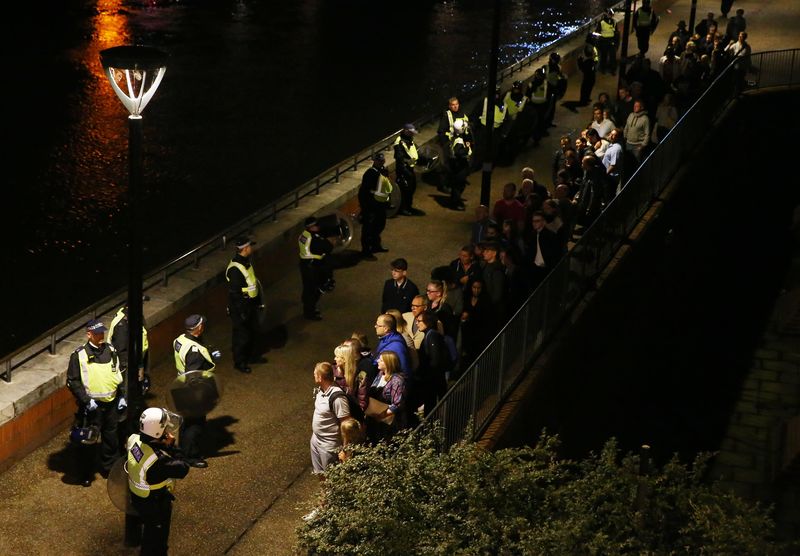By Yeganeh Torbati and David Shepardson
WASHINGTON (Reuters) - U.S. President Donald Trump came under fire on Sunday for criticizing London's mayor in the aftermath of attacks in the city that killed seven people and injured at least 48 others.
In a tweet, Trump seized on comments by London Mayor Sadiq Khan, who said Britons should not be alarmed to see more police in the streets after three men drove a van into pedestrians on London Bridge before stabbing others nearby.
"At least 7 dead and 48 wounded in terror attack and Mayor of London says there is 'no reason to be alarmed!'" Trump tweeted.
"We must stop being politically correct and get down to the business of security for our people. If we don't get smart it will only get worse," Trump said.
In response, a spokesperson for the London mayor said Khan "is busy working with the police, emergency services and the government to coordinate the response to this horrific and cowardly terrorist attack."
"He has more important things to do than respond to Donald Trump's ill-informed tweet that deliberately takes out of context his remarks urging Londoners not to be alarmed when they saw more police - including armed officers - on the streets," the spokesperson said.
Former Vice President Al Gore, speaking on CNN's "State of the Union" program, said he thought Trump's tweet misrepresented what the mayor had said.
"I don't think that a major terrorist attack like this is the time to be divisive and to criticize a mayor who's trying to organize his city's response to this attack," Gore, a Democrat, said.
Senator Mark Warner, a Democrat and vice chairman of the Senate Intelligence Committee, told CNN that it "troubles" him to see the kinds of tweets Trump has put out in the aftermath of the London attacks.
'EVIL SLAUGHTER'
Trump did not mention the mayor when speaking after a gala event at Washington's Ford's Theatre later on Sunday, where he condemned the attacks as an "evil slaughter."
He said the United States would do everything in its power to assist the UK in bringing those responsible to justice.
"This bloodshed must end. This bloodshed will end," Trump said, adding he would "do what is necessary" to prevent the threat from reaching the United States.
Islamic State on Sunday claimed responsibility for the London attack.
Trump also spoke with British Prime Minister Theresa May to offer condolences and offered Washington's "full support," the White House said in a statement.
Earlier in the day, Trump cited the London attacks to push his March 6 executive order that would temporarily ban entry into the United States of people from six predominantly Muslim countries.
The ban has been blocked in the courts and Trump's legal team has asked the Supreme Court to reinstate it.
Trump has said the travel ban is needed to protect Americans from terrorist attacks. Critics say his reasoning is flawed and assail the ban as discriminatory.
Speaking on NBC's "Meet the Press" program, former Secretary of State John Kerry said on Sunday: "A travel ban will be cannon fodder to the recruiters. It's the worst thing we could do."
Republican Senator Susan Collins told the CBS program "Face the Nation" that she thought Trump's travel ban was "not the right way to go" because it was too broad.
The U.S. State Department said it was monitoring the security situation and advised Americans in Britain to heed the advice of local authorities and maintain their security awareness.

The U.S. Department of Homeland Security issued a statement late on Saturday saying: "At this time, we have no information to indicate a specific, credible terror threat in the United States." Law enforcement officials in major U.S. cities said they were not aware of any threats but were on alert.